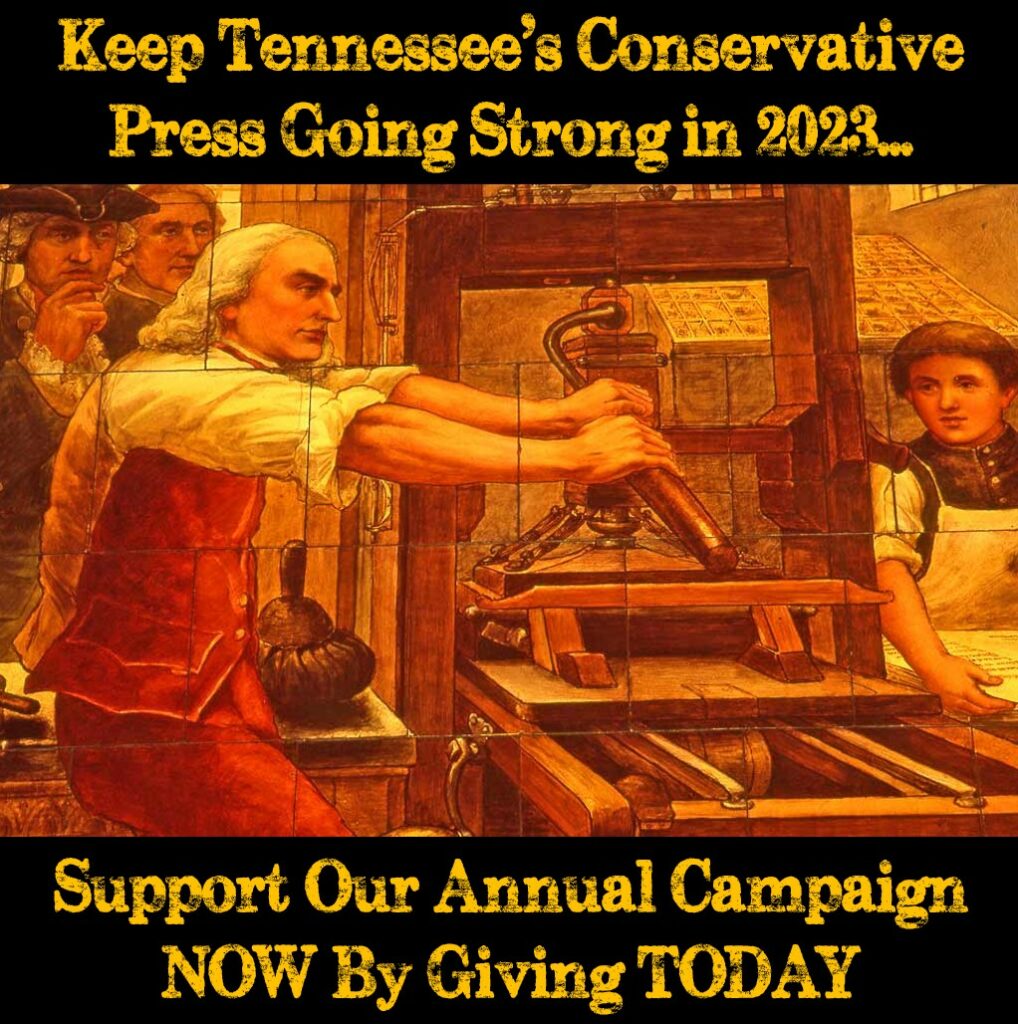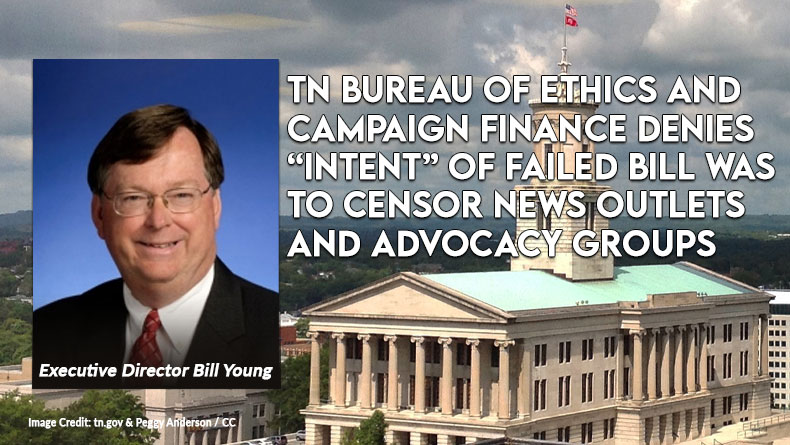Tennessee Bureau of Ethics and Campaign Finance Executive Director Bill Young denies that there was any intent with a failed version of a bill to expand the jurisdiction of the Registry board or apply rules to groups not previously under their current jurisdiction.
Image Credit: tn.gov & Peggy Anderson / CC
The Tennessee Conservative [By Jason Vaughn] –
During a recent GOP meeting, the Executive Director of Tennessee Bureau of Ethics and Campaign Finance, Bill Young was questioned about legislation his office proposed during the last session of the General Assembly that could potentially have been abused to censor the freedom of speech of news organizations and advocacy groups.
Earlier this year, Young’s office worked with Representative Sam Whitson (R-Franklin-District 65) to craft changes to some of the language in Tennessee Code.
Of concern were the portions having to do with the definition of a PAC (Political Action Committee) and the amount of money a given group expends to support or oppose a candidate or measure.

House Bill 0183 (HB0183), sponsored by Rep. Sam Whitson (R-Franklin-District 65) and Senate Bill 0160 (SB0160), sponsored by Sen. Richard Briggs (R-Knoxville-District 7) sought to redefine a Political Action Committee (PAC) as:
A) A club, corporation, association, or other group of persons that receives contributions or makes expenditures to support or oppose a measure; or
B) A club, corporation, association, or other group of persons that receives contributions or makes expenditures to support or oppose two (2) or more candidates for public office during a calendar year, and the contributions or expenditures in the aggregate exceed two thousand dollars ($2,000)”
Of note, the language of the bill states that a “club, corporation, association, or other group of persons” does not have to receive contributions for “a measure” or for “candidates.” Rather, only expenditures would need to be made supporting or opposing either to be redefined as a PAC under this legislation.
Check out the Tennessee Conservative’s coverage of this legislation HERE, that gives more background information.
During the GOP group meeting, Young stated that the changes would have increased the contribution limit from $1,000 to $2,000 (Section B above).
“All that provision did, under state law, it increased it from 1 (thousand dollars) to 2 (thousand dollars), which we thought less people would have to file,” Young said.

Regarding the redefinition of what a PAC is under state law, Young said, “We were just trying to make us sound like everybody else in the United States and the Feds. They all call them PACs. They don’t call them political campaign committees.”
The concern with the changes to Tennessee Code stemmed from how the changes would affect advocacy groups, companies, individuals and even news outlets.
Based on the actual language of the changes, rather than their “intent,” the above-classes seemingly could have been forced into converting into PACs, thereby placing all the campaign finance regulations that apply to PACs onto them as well. The changes to the code, as they were written, were very open to interpretation making the proposal, had it passed, ripe for abuse.
During the meeting, Young denied that there was any intent to expand the jurisdiction of the Registry board or apply the rules to groups not previously under said jurisdiction.
“That was never the intent. That was not the intent of the language. That’s not what it would have done,” Young said.
He stated that the proposed changes left the rest of the code the same and that it just “changed the name” of campaign committees to PACs.
Young stated that the registry rules, the current law and what was proposed, only apply to candidates and PACs. He stated that the language “to support or oppose two (2) or more candidates for public office” meant that the money had to go to the candidate him/herself and that it doesn’t apply to expenditures/donations by individuals.

The proposed changes to the code did not contain clarifying language regarding what expenditures of support or opposition of a candidate or measure might actually look like. Nor did it provide clear exemptions for certain groups. This would have caused confusion on what groups and organizations would be redefined as PACs.
Due to the unclear nature of the changes to the code and the potential for a wide array of interpretations that could be made by the public and elected/non-elected officials as well, Whitson and Brigg’s legislation received a great deal of pushback from concerned Tennesseans.
The pushback eventually led to the bill being amended to remove the controversial elements making it true “cleanup legislation,” which Young stated was the original intent.


About the Author: Jason Vaughn, Media Coordinator for The Tennessee Conservative ~ Jason previously worked for a legacy publishing company based in Crossville, TN in a variety of roles through his career. Most recently, he served as Deputy Director for their flagship publication. Prior, he was a freelance journalist writing articles that appeared in the Herald Citizen, the Crossville Chronicle and The Oracle among others. He graduated from Tennessee Technological University with a Bachelor’s in English-Journalism, with minors in Broadcast Journalism and History. Contact Jason at news@TennesseeConservativeNews.com



